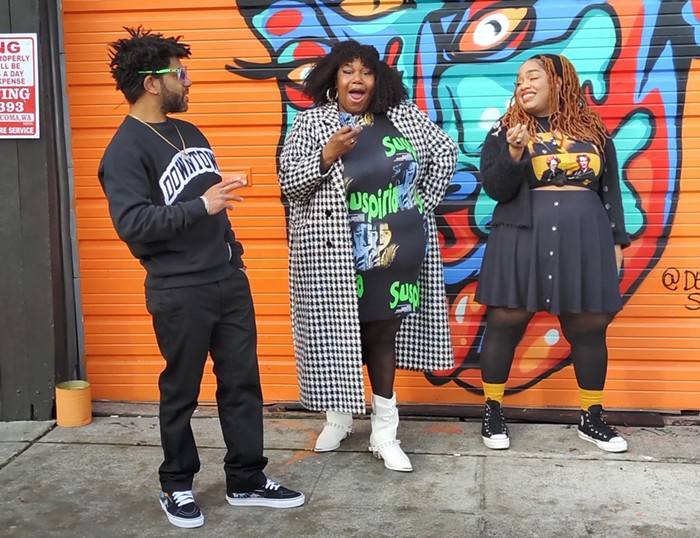While Seattle’s Pride celebrations are just ramping up, Pride Month goes through all of June. It’s a month chosen to commemorate the Stonewall Riots of 1969, but 50 years later, Pride Month has grown to draw attention to the many concerns facing LGBTQ+ communities, including safety, housing and employment discrimination, and a multitude of other threats our current dystopian fever-dream administration seems to be adding on the regular.
What does this have to do with weed? Cannabis has a long relationship with the LGBTQ+ community, and pot-loving heteronormative cisgender white dudes such as me owe a tremendous debt to the queer community. So let’s explore some of those connections and the ways your canna dollar can support LGBTQ+ business owners all year round.
It’s not an overreach to say that without the LGBTQ+ community, we wouldn’t have medical cannabis programs, let alone regulated adult-use recreational programs. The nation’s first medical cannabis dispensary came about because of the work of a gay man, Dennis Peron, who opened his dispensary in San Francisco in 1991. He did so after having lost his partner to AIDS, and he had seen the benefits and relief cannabis could provide to people with the disease. He also worked with another gay man, San Francisco city supervisor Harvey Milk, to pass Proposition W, which aimed to stop the arrest and prosecution of people possessing or growing pot. He also worked on Proposition 215, which established the nation’s first statewide medical cannabis program.
Even beyond California’s pioneering medical program, cannabis remains an important issue for the LGBTQ+ community. Paul Scott, the president of the LA Black Gay Pride Association, told the Washington Blade, “It’s still an LGBT issue because it’s still not accessible to everybody everywhere. HIV/AIDS is still high in Black populations in the South. And they can’t get pot. They still have to break laws.”
And yet, now that legal cannabis is booming, the industry hasn’t made the LGBTQ+ community a high priority. Which is puzzling, as a 2016 study of LGBTQ+ purchasing power in the United States estimates the community having a combined purchasing power of $965 billion. But as the CEO of a Seattle-based cannabis branding agency—Jared Mirsky of Wick & Mortar—told Leafly earlier this year, in the 10 years they have been in business, “his clients have yet to request any LGBTQ-specific projects.”
This is not to say that some cannabis companies aren’t doing the same thing for Pride Month that plenty of other companies do, i.e., affixing a rainbow flag onto their product as a way of showing support. In a study by Grindr’s former digital magazine Into, the number of respondents saying they felt “very positive” about LGBTQ+-themed branding jumped from 15.6 percent to more than 40 percent when the branding occurred year-round and not just for Pride.
There’s room to celebrate LGBTQ+ rights outside of June. One of the best ways is by seeking out companies owned and operated by members of the LGBTQ+ community. And Washington could definitely use more pot businesses in this area.
Having ownership gives those brands a louder voice for the LGBTQ+ community. Katie Stem, CEO of Peak Extracts out of Oregon, told Weedmaps, “I’ve found that the queer-owned companies... gear their marketing toward the universal, accessible demographic. The more queer, trans, and female people we have working in this space, the less the industry will fall prey to the degrading advertising tactics of the alcohol and tobacco industries.”
Raising the profile of LGBTQ+ communities is crucial, especially in an industry that continues to market to a predominantly white, straight, male audience. Cannabis has always been an inclusionary experience. Sharing a joint or bowl builds community, regardless of how anyone in the smoking session identifies or presents. ![]()
















